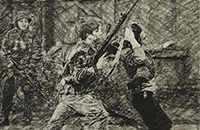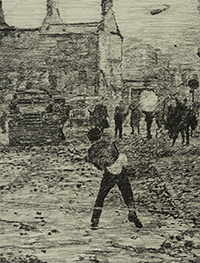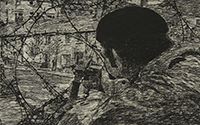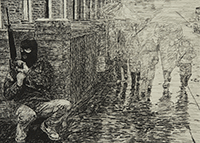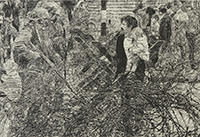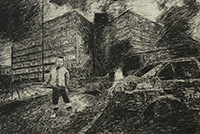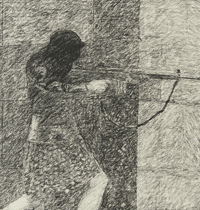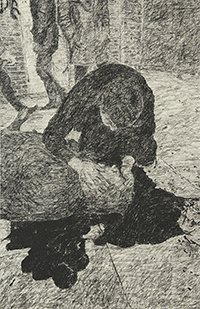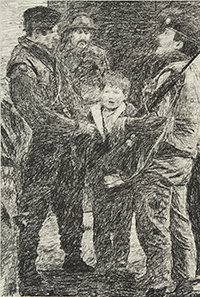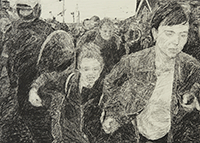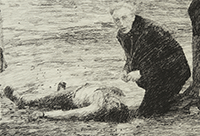Enforcing Orange Order
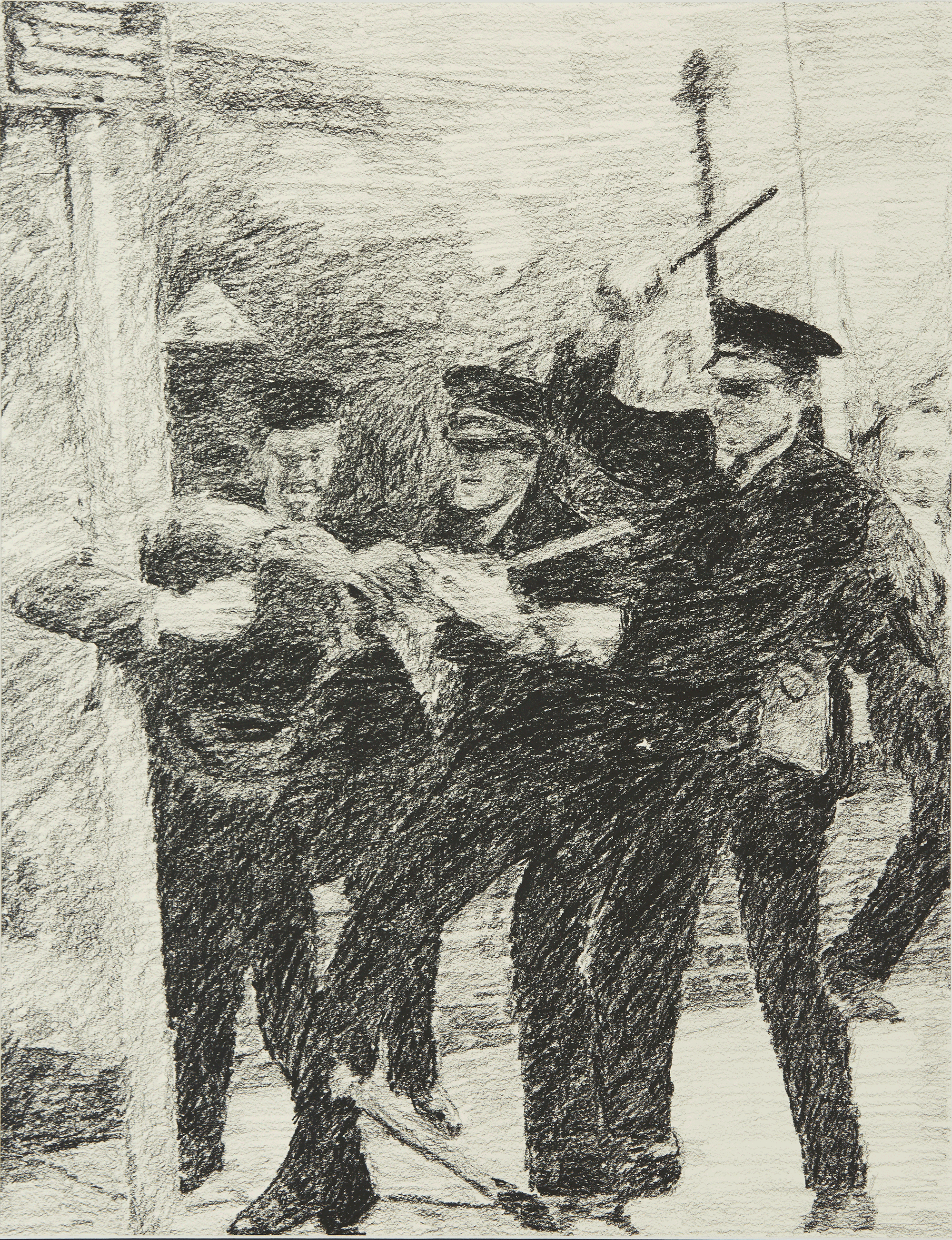
Enforcing Orange Order
Between 1922 and 2001, the Royal Ulster Constabulary (RUC) was the police force in Northern Ireland. The Special Powers Act of 1922 gave the newly formed government of Northern Ireland the ability to do nearly anything it deemed necessary to maintain order. The RUC was allowed to search without warrants and imprison individuals without charge or trial. With the Northern Irish government’s fear that individuals from a Nationalist or Catholic background would be disloyal to the Unionist and Protestant virtues of the state, the political establishment was disinclined to hire Catholics for the RUC. Through the existence of the RUC, representation of the Nationalist community never exceeded 20 percent. Before the start of “The Troubles” in the late 1960s, Nationalist representation in the RUC was as low as twelve percent. In 1997 an internal RUC document published by The Independent reported that a third of the few Catholic officers within the RUC faced harassment and discrimination from their fellow officers from Protestant backgrounds.
To state that the lack of Nationalist representation in the RUC in the policing of a divided state was problematic would be an understatement. While civil rights protestors were attacked by Loyalist groups, the RUC failed to provide adequate protection or a response to the attackers. At a march in Derry in 1968, the RUC surrounded protestors and beat them indiscriminately inuring over 100 people. Off duty RUC officers were among the 200 armed with improvised weapons such as iron bars and sticks spiked with nails in the planned attack on civil rights marchers at Burntollet Bridge on the 1st of January 1969. The RUC did little to prevent the attack and some were accused of aiding attackers at Burntollet Bridge, irreparably damaging the RUC’s reputation. That same evening, RUC officers stormed the Bogside area of Derry targeting Nationalist homes, attacking and threatening residents as well as shouting sectarian abuse. In April of 1969, as riots continued in Derry, RUC officers entered the home of Samuel Devenny, a man uninvolved in the rioting. Devenny, his two teenage daughters, and others in the home were beaten in front of the family’s younger children. Devenny died of his injuries months later and one of his daughters, who was recovering from surgery at the time of the attack, was beaten unconscious.
In 1992, Human Rights Watch issued a report alleging RUC violations of children’s rights. Children from both Nationalist and Unionist communities alleged severe physical abuse and harassment by RUC officers. It was frequently alleged that members of the RUC colluded with Loyalist paramilitary organisations. Some members of the RUC were also members of Loyalist paramilitary groups, such as John Weir and Billy McCaughey who were convicted of kidnapping and murder. The two implicated other RUC officers of a number of crimes including giving information and weapons as well as transportation to Loyalist paramilitaries and also conducting bombings and shootings of their own. Weir claimed that Chief Superintendent Harry Breen and other senior members of the RUC were aware of and even approved of such activities.
With all of the various incidents and allegations against the RUC, Nationalists widely regarded it as corrupt force pushing a Loyalist agenda. The Provisional IRA heavily targeted the RUC during “The Troubles”. 319 officers were killed and 9,000 were injured during the conflict, making the RUC the most dangerous law enforcement agency in which to serve. Allegations of collusion between the RUC and Loyalist paramilitary groups prompted a number of inquiries after the Good Friday Agreement. The most notable of these inquiries is that of Police Ombudsman Nuala O’Loan. The report, in 31 separate headings, identified collusion between the police and Loyalist paramilitaries. In her conclusions, O’Loan stated that there was no cause to consider the findings in the report as isolated incidents. Despite the reports, no member of the RUC has been charged or convicted as a result of such inquires.


